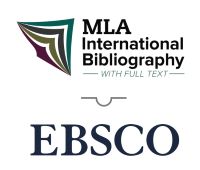Perspectiva diacrônica de estratégias de aprendizagem de L2/LE
DOI:
https://doi.org/10.26512/rhla.v22i2.50766Palavras-chave:
Estratégias de aprendizagem, Estratégias de aprendizagem de L2/LE, Aquisição de língua estrangeiraResumo
O presente artigo adota perspectiva cronológica para apresentar a evolução das pesquisas em Estratégias de Aprendizagem de L2/LEs dos últimos quarenta anos. Primeiramente, estudos relevantes são revisados e resultados de pesquisas seminais são examinados. Em seguida, breve panorama dos estudos de intervenção é fornecido. Discussões importantes incluem o nascimento dos estudos de estratégia, controvérsias na área e contribuições da literatura existente para o ensino em segunda língua/línguas estrangeiras. O artigo conclui com direções futuras para pesquisa na área.
Downloads
Referências
BAGARIĆ, Vesna; MIHALJEVIĆ DJIGUNOVIĆ, Jelena. Defining communicative competence. Metodika, v. 8, n. 14, p. 84-93, 2007.
BIALYSTOK, Ellen. The role of conscious strategies in second language proficiency. The Modern Language Journal, v. 65, n. 1, p. 24-35, 1981.
CHAMOT, Anna Uhl. Language learning strategy instruction: current issues and research. Annual Review of Applied Linguistics, v. 25, p. 112-130, 2005.
COHEN, Andrew D. Becoming a strategic language learner in CALL. Applied Language Learning, v. 17, n. 1-2, p. 57-71, 2007.
DÖRNYEI, Zoltán; SKEHAN, Peter. Individual differences in second language learning. In: DOUGHTY, C. J.; LONG, M. H. The handbook of second language acquisition. Malden, MA: Blackwell Publishing, 2003. p. 589-630.
DÖRNYEI, Zoltán. Language learning strategies and student self-regulation. In: _____. The psychology of the language learner: Individual differences in second language acquisition. London: Lawrence Erlbaum, 2005. p. 162-196.
GREGERSEN, Tammy; MACINTYRE, Peter D.; MEZA, Mario D. The motion of emotion: idiodynamic case studies of learners' foreign language anxiety. The Modern Language Journal, v. 98, n. 2, p. 574-588, 2014.
GRENFELL, Michael; MACARO, Ernesto. Language learner strategies: claims and critiques. In: MACARO, E.; COHEN, A. (Eds.). Language learner strategies: 30 years of research and practice. Oxford: Oxford University Press, 2007. p. 9-27.
GRIFFITHS, Carol (Ed.). Lessons from good language learners. Cambridge University Press, 2008.
HARRIS, Vee. Adapting classroom-based strategy instruction to a distance learning context. Tesl-ej, v. 7, n. 2, p. 1-19, 2003.
HOLEC, Henri. The learner as manager: managing learning or managing to learn? In: WENDEN, A.; RUBIN, J. (Eds.). Learner strategies in language learning. Hertforshire: Prentice Hall, 1987. p. 145-157.
LIGHTBOWN, Patsy M.; SPADA, Nina. How languages are learned. 5th Edition. Oxford: Oxford University Press, 2021.
MACARO, Ernesto. Learning strategies in foreign and second language classrooms. London: Continuum, 2001. p. 1-288.
MACARO, Ernesto. The relationship between strategic behavior and language learning success. Continuum companion to second language acquisition. London: Bloomsbury Publishing, 2010. p. 268-299.
NAIMAN, Neil (Ed.). The good language learner. Bristol: Multilingual Matters, 1996.
O'MALLEY, J. Michael; CHAMOT, Anna Uhl. Learning strategies in second language acquisition. Cambridge: Cambridge University Press, 1990.
O'MALLEY, J. MICHAEL et al. Learning strategy applications with students of English as a second language. TESOL Quarterly, v. 19, n. 3, p. 557-584, 1985.
OXFORD, Rebecca L. Research on second language learning strategies. Annual Review of Applied Linguistics, v. 13, p. 174-187, 1992.
RUBIN, Joan. What the" good language learner" can teach us. TESOL Quarterly, p. 41-51, 1975.
RUBIN, Joan. Study of cognitive processes in second language learning. Applied Linguistics, v. 2, n. 2, p. 117-131, 1981.
RUBIN, Joan et al. Learner strategies: Theoretical assumptions, research history and typology. In: WENDEN, A.; RUBIN, J. Learner strategies in language learning. Padstow: Prentice Hall, 1987. p. 15-29.
SKEHAN, Peter. Individual differences in second language learning. Studies in Second Language Acquisition, v. 13, n. 2, p. 275-298, 1989.
STERN, Hans Heinrich. What can we learn from the good language learner?. Canadian Modern Language Review, v. 31, n. 4, p. 304-319, 1975.
TARONE, Elaine. Some thoughts on the notion of communication strategy. TESOL Quarterly, v. 15, n. 3, p. 285-295, 1981.
WENDEN, Anita. How to be a successful language learner: insights and prescriptions from L2 learners. In: WENDEN, A.; RUBIN, J. Learner strategies in language learning. Padstow: Prentice Hall, 1987. p. 159-167.
Downloads
Publicado
Como Citar
Edição
Seção
Licença
Copyright (c) 2023 Revista Horizontes de Linguistica Aplicada

Este trabalho está licenciado sob uma licença Creative Commons Attribution-NonCommercial-NoDerivatives 4.0 International License.

Artigos publicados pela Revista Horizontes de Linguística Aplicada são licenciados sob uma Licença Creative Commons Atribuição-NãoComercial-SemDerivações 4.0 Internacional.
Ao publicar na Horizontes de Linguística Aplicada, os autores concordam com a transferência dos direitos autorais patrimoniais para a revista. Os autores mantêm seus direitos morais, incluindo o reconhecimento da autoria.
Autores e leitores têm o direito de:
Compartilhar — copiar e redistribuir o material em qualquer suporte ou formato
De acordo com os termos seguintes:
- Atribuição — Você deve dar o crédito apropriado , prover um link para a licença e indicar se mudanças foram feitas . Você deve fazê-lo em qualquer circunstância razoável, mas de nenhuma maneira que sugira que o licenciante apoia você ou o seu uso.
- NãoComercial — Você não pode usar o material para fins comerciais .
- SemDerivações — Se você remixar, transformar ou criar a partir do material, você não pode distribuir o material modificado.
- Sem restrições adicionais — Você não pode aplicar termos jurídicos ou medidas de caráter tecnológico que restrinjam legalmente outros de fazerem algo que a licença permita.







